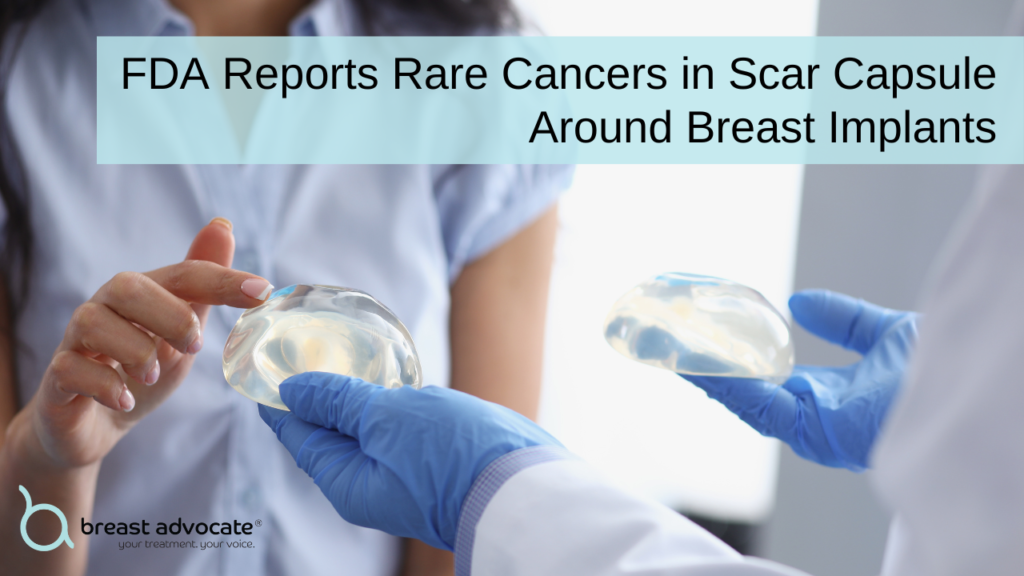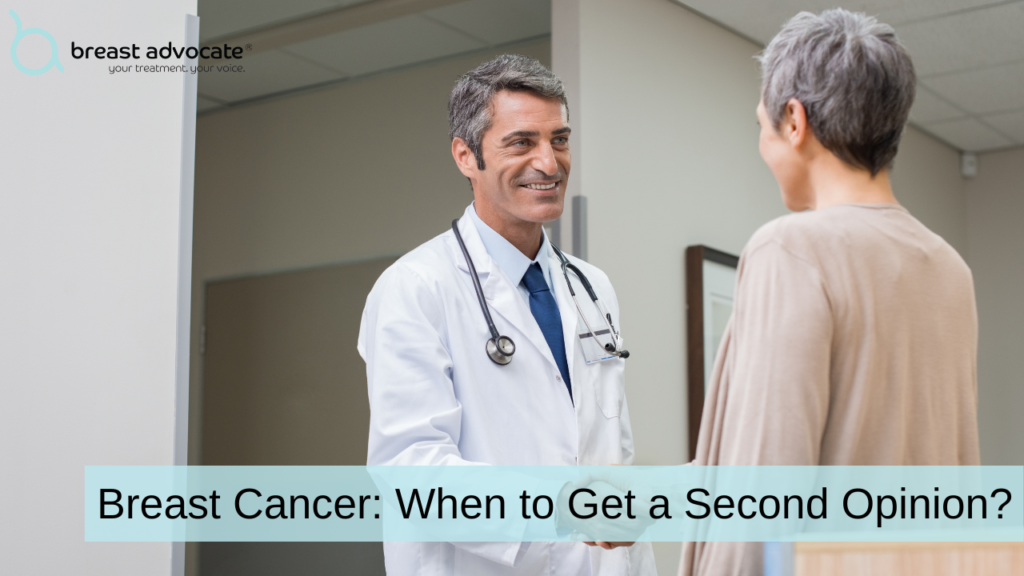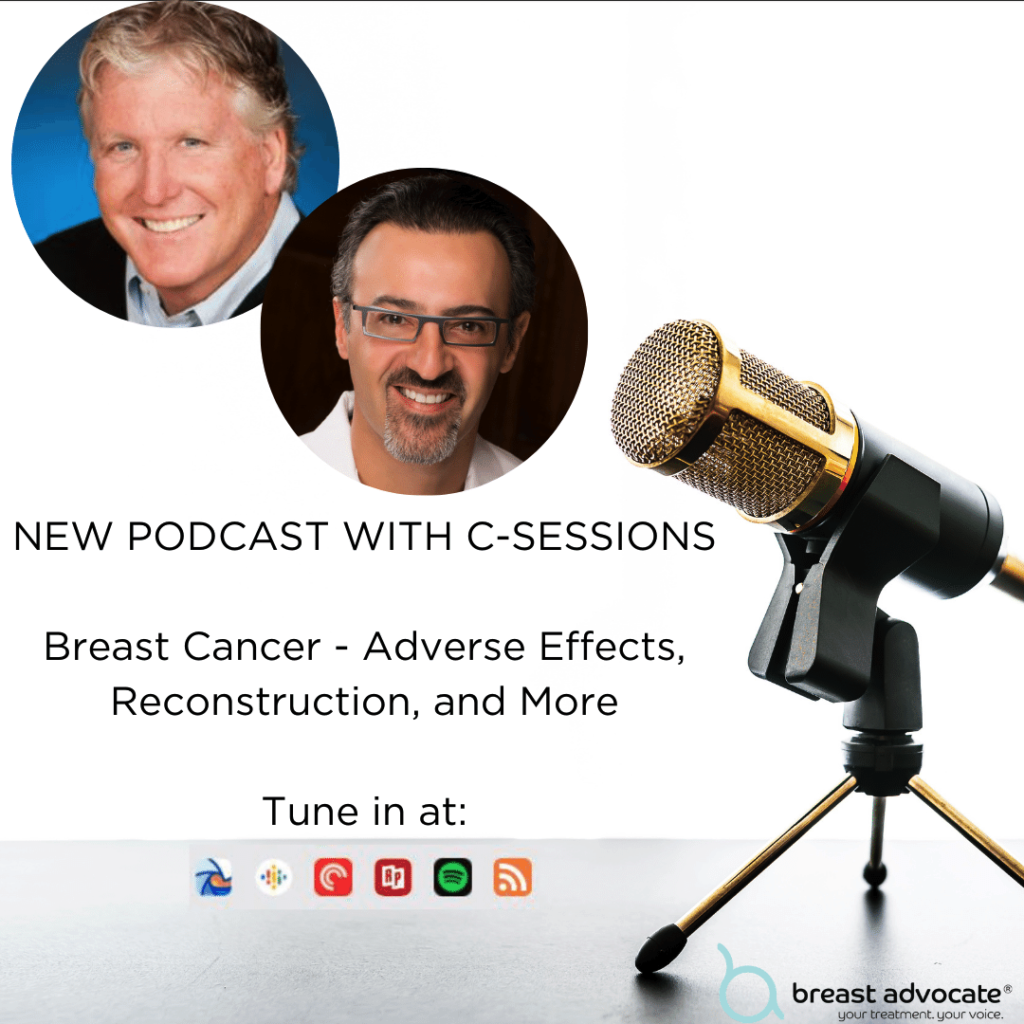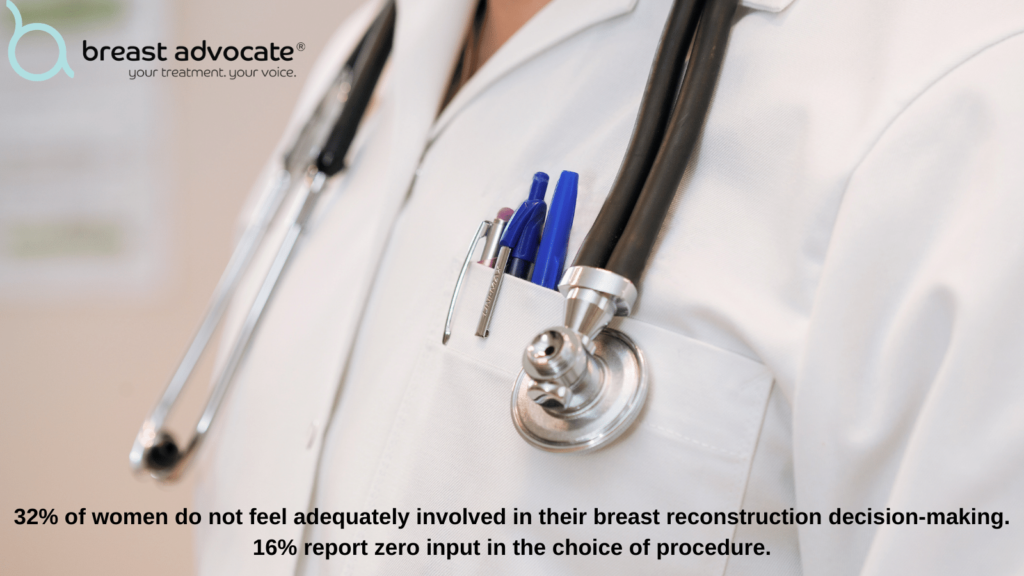FDA Reports Rare Cancers in Scar Capsule Around Breast Implants

According to a recent report from the U.S. Food and Drug Administration (FDA), squamous cell carcinoma (SCC) and various lymphomas may develop in the capsule that forms around breast implants. The lymphomas are not the same as the breast implant-associated anaplastic large cell lymphoma (BIA-ALCL) that prompted previous FDA announcements. The FDA learned about the newly associated cancer during a post-market review of breast implants.
It is very important to know that these cancers are extremely rare. Less than 20 cases of SCC and fewer than 30 cases of lymphoma were found in the capsule around a breast implant.
“After an initial extensive review, we currently believe that the risk [for squamous cell carcinoma] and other lymphomas occurring in the tissue around breast implants is rare,” said Binita Ashar, MD, director of the Office of Surgical and Infection Control Devices in the FDA’s Center for Devices and Radiological Health. “However, in this case, and when safety risks with medical devices are identified, we wanted to provide clear and understandable information to the public as quickly as possible.”
The Type of Implant Probably Doesn’t Matter
The type of implant appears to be irrelevant – all types of implants (smooth, textured, saline, and silicone) have been linked to SCC and lymphomas in the scar capsule around the implants. In some cases, women were diagnosed years after the placement of their implants. Some signs and symptoms include swelling, pain, lumps, or skin changes.
If you are considering breast implants or currently have them, the FDA recommends the following:
- Ensure you are fully educated about the risks and benefits of breast implants.
- Be aware that cases of SCC and various lymphomas in the capsule around the breast implant have been reported, but they are rare.
- You should monitor your breasts and implants by regular self-exam and contact your plastic surgeon about any changes.
- File a report through MedWatch if you experience any problems.
What Doctors Should Know
If you are a healthcare professional caring for patients with breast implants, the FDA recommends you:
- Be aware that cases of SCC and lymphomas in the capsule around the breast implant have been reported.
- When examining breast implant specimens for diagnostic evaluation, characterize all findings and potential diagnoses.
- Report cases of SCC, lymphomas, and any other cancers in the capsule around the breast implant to the FDA.
The FDA said their consumer and healthcare recommendations don’t affect the previously provided suggestions on BIA-ALCL. They are continuously assessing the post-market safety of approved breast implants and will communicate any findings as soon as new information is available.
If you would like to learn more about ALL your breast reconstruction options, download the Breast Advocate App free today!
Breast Cancer: When to Get a Second Opinion?

Considering a second opinion? It is important to know you can get a second opinion at any time during your treatment. This can be very helpful to ensure you are as comfortable as possible with your treatment plan. If you are considering getting another opinion however, we recommend you do so at the beginning of your cancer care if possible to allow for a change in treatment if needed.
“Anytime a patient is given a diagnosis that is maybe not the most common, or maybe has some intricacies or nuances, then it’s probably a good idea to meet with multiple physicians who can give opinions on treatment plans for that unique diagnosis,” says Dr. Jessica Burns, a breast cancer surgeon for ProMedica, and Dr. Christopher Lutman, a gynecologic oncologist with Mercy Health in a recent article.
At first, it might feel like you are doubting your doctor’s judgment, however, it’s a fairly common request that doctors are used to hearing.
When to Consider a Second Opinion
- After biopsy results: The biopsy involves taking a small sample of the breast mass or area of concern to examine it for malignant (cancerous) cells. Any discrepancy by the pathologist who interprets the results could make a difference in your diagnosis and the treatment approach the is recommended. When considering a second pathology opinion, check the service is “in-network” and covered by your insurance plan.
- Before surgery: Getting a second opinion from another breast surgeon or plastic surgeon can be helpful if you are unsure about the type of breast cancer surgery or reconstruction you should have. The decision between having a lumpectomy or mastectomy, and equally choosing aesthetic flat closure or breast reconstruction, can be extremely personal. There is often no “right” or “wrong”; only what is best for you. Given the variety of breast reconstruction options available, it is a good idea to consult with more than one plastic surgeon if you are considering reconstruction, especially if you are considering of the more complex procedures like the DIEP flap. Just as some breast surgeons don’t offer oncoplastic surgery at the time as a lumpectomy, some plastic surgeons don’t offer microsurgical flap options.
- When planning treatment after surgery: Treatment options after surgery can include chemotherapy, radiation therapy, hormonal therapy, and targeted therapies. The best treatment for you will depend on the details of your diagnosis, the pathology results from surgery, and your individual needs. Sometimes, the recommendations can be very clear-cut based on well-established guidelines. Occasionally, the situation isn’t so clear and a second opinion from another specialist can be very helpful to help you navigate your options.
- During treatment: If the treatment plan isn’t working, you have treatment-related issues your doctor can’t resolve, or you aren’t comfortable with an aspect of your care, it’s likely worth seeking a second opinion.
- After treatment: Even if you’ve already finished treatment, you may still benefit from an alternative perspective when it comes to a survivorship care plan. Unfortunately, it’s after treatment that many patients feel the most lost. If you don’t feel you have the support or guidance you need from your medical team, it may be beneficial to get a second opinion.
Helpful Resources
If you are already confident with your original physician’s/team’s treatment recommendations, that’s great! Other resources you can explore that can provide additional support include reputable online support groups and the Breast Advocate App.
The Importance of Knowing All Your Breast Cancer Surgery Options
Breast Advocate founder Dr. Minas Chrysopoulo recently joined the C-Sessions podcast for a discussion on breast cancer surgery, breast reconstruction, the potential adverse effects, and the importance of knowing all your surgical options throughout any stage of the breast cancer treatment journey.
Randall Broad graciously hosted the conversation which included Christine, a breast cancer survivor. Christine openly shared her experience of multiple lumpectomies, an eventual mastectomy, and then multiple attempts to reconstruct her breast with implants. A major contributing factor to Christine’s frustration has been the lack of access to all the information she felt she needed to make fully-informed surgical decisions from the get-go following her breast cancer diagnosis.
Christine’s experience unfortunately isn’t unique. When it comes to breast reconstruction in particular, 1 in 3 women feel they don’t have enough say in their treatment decision-making. The Breast Advocate® app was created to address this problem. Breast Advocate provides all the information patients need to make fully-educated decisions about which procedure is best for them after a breast cancer diagnosis. Download it free here.
Listen to the C-Sessions podcast here.

1 in 3 Women Don’t Have Enough Say in Their Breast Reconstruction Decision-Making

Patient’s relationships with their healthcare team can play a major role when it comes to planning medical procedures. In the setting of breast cancer surgeons can greatly influence surgical decision-making. This is particularly the case when it comes to breast reconstruction.
In the largest ever behavioral study focused on breast surgeons and breast cancer patients, results suggest surgeons play a bigger role in breast reconstruction planning than many patients would prefer. The study, published in the British Journal of Surgery, surveyed 53 surgeons, 101 breast cancer nurses, and 689 patients diagnosed with breast cancer.
According to the study, “approximately one in every three women (32%) stated their surgeon had more input than they did, when deciding which type of breast reconstruction to undergo.” Additionally, 16% of women felt they had zero input in the choice of reconstructive procedure they had. We find it very concerning that so many women in this study feel they played little to no role in deciding which type of breast reconstruction was best for them.
The Importance of Shared Decision-Making
This study is yet another example of why shared decision-making is so important, and why we created the Breast Advocate app!
We believe patients should be fully informed of all their breast reconstruction options, as well as the option of aesthetic flat closure (no reconstruction with a nicely-contoured, truly flat result). It is only once all the options are fully discussed, that patients can take part in a shared-decision-making conversation with their surgical team.
Shared decision-making occurs when the health care professional and patient work together to make a treatment decision that is best for the patient. The best decision takes into account evidence-based information about treatment options, the physician’s knowledge and experience, and the patient’s preferences and values. Multiple studies show this collaborative approach improves patient outcomes and satisfaction.
Co-created by leading breast cancer specialists and patient advocates, our free breast cancer surgery app provides evidence-based information and customized surgical recommendations, personalized for each individual user based on diagnosis and personal preferences. Regardless of an individual’s situation, users will have all the information and tools they need to take a more active role in decisions about their treatment.
Breast Advocate Founder Joins BRAVE Coalition to Discuss Rescheduling Elective Breast Surgery After COVID-19
Why is there so much confusion on whether elective cases (including breast reconstruction) can start to resume?
Yes, there’s lots of confusion, especially as it relates to a hospital setting versus other surgery centers. Obviously, a lot of a lot of plastic surgeons operate either out of their offices or they have operative suites. Many of them have surgery centers or ambulatory surgical centers. There has been a lot of mixed messaging and some confusion for sure.
For us [in San Antonio], we are operating again. I am very happy with the procedures in place at the local hospitals in terms of testing. I am one of those who believes that we need testing for all patients. Personally, I would not be comfortable offering [breast reconstruction] surgery to people right now without pre-operative COVID-19 testing. There are pros and cons to every approach but that’s just my take.
We must have consistent, good, safe practices and protocols for everyone. Specifically, the surgical community fears operating on asymptomatic positive patients (someone who is positive who doesn’t know it because they’re not showing any symptoms). There’s some data out there that suggests that positive patients who are asymptomatic are at higher risk of developing post-operative complications. You’ve got to take that data seriously.
There was a study out of China that looked at elective patients having surgery (various specialties not just breast reconstruction). They looked at patients who were actually, in retrospect, positive for COVID-19 but at the time hadn’t shown any symptoms so they would have passed all verbal screening measures. Many of those patients ended up getting complications after surgery that otherwise you wouldn’t have expected them to have. There was a very high rate of pneumonia and mortality. Mortality was actually 20%. There’s lots of other data you have to take into account too. What’s the risk of someone being an asymptomatic carrier, what’s the rate of infection in the community…?
In San Antonio, only 10% of people being tested for COVID-19 are coming back positive. But, without mass testing you don’t know what the baseline rate of infection is.
There is a school of thought that’s a lot less restrictive… If you have a low risk patient who hasn’t had any obvious exposure, who passes all the verbal screening and physical screening (no symptoms, normal temperature, normal oxygen saturation on a pulse oximetry)… you don’t need testing on that person. That’s a track that some surgeons are pursuing and there’s definitely some value and an argument to pursue that line, and to reserve testing for only the high-risk group.
I don’t want people to take away from this that if your surgeon doesn’t test you pre-operatively, then you shouldn’t be having the surgery…that’s not what I’m saying. You have to take into account your individual situation, the geographic location, what’s going on where you are, and just have a very honest conversation with your surgeon, and talk about the protocol [they’re using].






